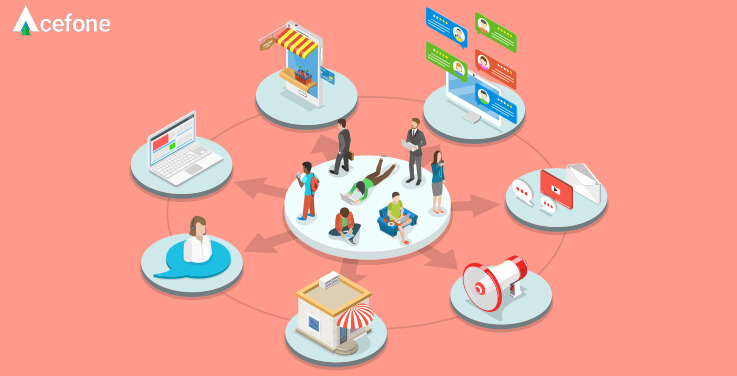Most casual users of the Internet and social media are increasingly concerned about protecting their personal data and privacy.
There are news stories abound on data leaks and data hacks regularly, causing netizens concern. And rightly so, since sharing personal data while shopping or often visiting e-commerce websites has become imperative. Not just that, most consumers either do not know how companies use such data that they share.
However, there is another set of consumers who are more aware, research and take suitable actions to protect their data. They tend to even choose who they buy products from based on their perception of how much of their data is likely to be used or misused.
Until not too long ago, most businesses paid little heed to this growing concern in consumers. Their business strategies seldom included privacy considerations. Companies saw this as platonic and an avoidable expense.
While governments started taking initiatives to establish a regulatory framework to tackle the risks and established severe punitive fines, it appeared that execution of the laws lacked teeth. The penalties too were rare and significantly lower than envisaged. Only real big violators were impacted.
Things have, however, changed over the last few years and continue to do so.
A survey done by Cisco a couple of years ago with 2500 adult respondents across 12 of the largest economies across the Americas, Europe and the Asia Pacific provided some actionable insights. Before we illustrate the findings, let us refresh some essential points.
What is Data Privacy?
Any individual or group should have the ability to know and control the extent to which his personal information is shared or used. Such personal information may include things like name, gender, contact information, location, online or offline behaviour, and more.
Any use of such information collected by companies or businesses should not be without the consent of such individuals or groups. This, in a nutshell, is Data Privacy.
The prolific prevalence of social media platforms, applications and even websites that collect such information on consumers and their behaviour mean that data is being collated and mined, used and at times misused round the clock.
Some of these applications and websites, at times, do not have enough safeguards around the data collected. Some even use such data beyond reason, thereby exposing consumers to potential risks and compromising their privacy.
With the manifold increase in the use of Internet applications over the years, the need for and importance of data privacy have also gone up significantly.
The importance of data privacy
There are a variety of ways in which customers’ personal or behavioural information can be misused:
- Frauds or harassment engineered by crooks or people with mala fide intents
- Unwanted marketing communications if such information is hacked into by or sold to advertisers and marketers
- The ability to express openly and freely in the online world can get restricted for individuals owing to the fear of information misuse
In reality, there are many more ways that information can be misused without the consent of individuals.
Any of these situations can not only cause harm to individuals, but they can also cause irreparable damage to the reputation of businesses or companies that do not have sufficient safeguards to protect the information.
Many geographies around the world hold the right to privacy as a right to free society and have implemented laws and frameworks to guard such rights.
Privacy as seen by customers
The survey done by Cisco in 2019 further gives significant pointers and broad trends to how consumers view privacy:
- A significant number of consumers worry about what companies are doing with their data.
- People care about privacy. A large number of them have taken action to protect it
- Privacy regulations and policies help build trust
- Consumers value the role of the government in regulating the use of data. For example, the EU’s General Data Protection Regulation (GDPR) is viewed very favourably
Value of privacy to businesses
Statistics published by Pew Research show that there is a hacker attack every 39 seconds. Typical businesses store a lot of private information on their consumers, and a data breach can lead to losses of many kinds.
It would not be a stretch of the imagination to say that businesses will probably not survive without protocols and guardrails in place. And there are many reasons for making the statement.
Following are the top of the list:
- Regulations and compliances: Frameworks like GDPR and the laws are now stringent. And compliance is not optional anymore. Not having sufficient safeguards is no longer just irresponsibility on the part of businesses; it is tantamount to breaking laws. And the consequences for non-compliance may be monetary or other penalties. Implementing GDPR-compliant data collection ensures businesses handle personal data responsibly while maintaining trust.
- Data Breaches: The reality is that there is a growing threat of data breaches. In this environment, businesses must have proper security protocols and practices in place. Any incidence can cause monetary losses and reputational damage apart from punitive penalties.
- Customer Loyalty: In case of a data leak, or even a perception of it, consumers are likely to stop doing business with such companies and simply switch to a competitor. They need to be convinced that the information they share is safe with the company.
- Ethics: Most organisations follow a code of ethics and business practices. Whether explicitly stated or not, companies have to follow ethical standards simply because consumers value it, and doing so adds to the brand’s value.
How they manage consumers’ confidential information only for business purposes and not in any other way is a crucial element. It needs to be stated and followed in practice. There is simply no option.
Impact on Brand value
Brand equity often shadows the trust that customers place in a company and its products and services.
Naturally, the security of data and information add to consumers’ faith and, hence, the brand’s value.
This simply means that implementing trusted and powerful principles and actions and sharing them with consumers becomes a vast opportunity to outshine the competition, thereby adding to the brand positioning and earning deeper customer loyalty.
Conclusion
While regulatory frameworks like GDPR can become a suitable guiding force, it is essential to understand some critical realities for business survival in the current information age.
Consumers are becoming aware of their rights to their personal information. Criminals with mala fide intents are placing increasing value on such information. Governments are rolling out stiffer laws to protect privacy and trust in all forms, playing a larger role in consumer loyalty.
Let us reiterate that privacy is seen as a fundamental human right, and this has also been recognised in the UN Declaration of Human Rights.
It is essential not only to know, but it is also even more critical to build a sound practice around privacy and communicate it well, both within the company and to consumers.
Building and implementing a good data privacy policy is a step in the right direction towards building resilience to internal and external threats, insuring against penalties and creating a differentiator that adds to the trust that consumers place in your company.














